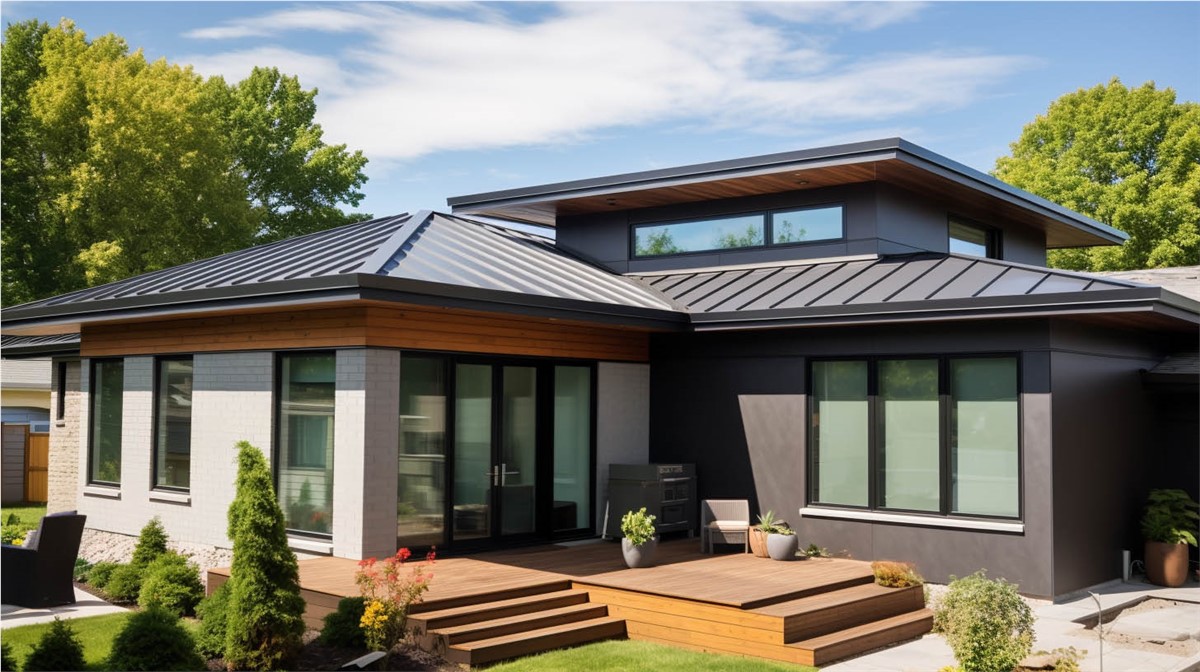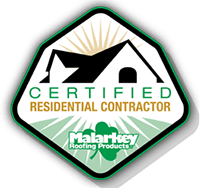
Introduction to Roofing Choices
When it comes to selecting the right roof for your home or business, the decision often boils down to two primary types: flat roofs and pitched roofs. Each has its unique advantages, challenges, and suitability depending on various factors such as climate, architectural design, and personal preferences. In this article, we delve into the specifics of each roofing type, helping you make an informed decision for your property.
Understanding Flat Roofs: Advantages and Considerations
Flat roofs, characterized by their minimal slope, are a common sight in modern and commercial architecture. Their simplicity in design offers several benefits:
Space Utilization
Flat roofs provide additional space for various uses like rooftop gardens, HVAC units, or even as leisure spaces. This aspect is particularly beneficial in urban settings where outdoor space is at a premium.
Cost-Effectiveness
Generally, flat roofs are more affordable to install than pitched roofs. Their simpler structure requires fewer materials and labor, making them a cost-effective option for many property owners.
Accessibility
Due to their flat nature, these roofs are easier to inspect and maintain. This accessibility simplifies tasks like gutter cleaning, solar panel maintenance, or even roof repairs.
However, flat roofs require meticulous maintenance, especially in areas with heavy rainfall. Proper drainage systems are crucial to prevent water accumulation and potential damage.
Pitched Roofs: Traditional Aesthetics and Durability
Pitched roofs, known for their sloping sides, are a staple in residential architecture. They offer distinct advantages:
Enhanced Drainage
The sloped design of pitched roofs allows for efficient water and snow runoff, reducing the likelihood of water damage and leaks.
Longevity
Materials used in pitched roofing, like tiles or shingles, often have a longer lifespan and provide better protection against environmental elements.
Aesthetic Variety
Pitched roofs offer diverse design possibilities, complementing a wide range of architectural styles from traditional to contemporary.
While pitched roofs are often more durable, they usually come with a higher initial installation cost and can be more challenging to maintain due to their sloped nature.
Making the Right Choice for Your Property
When deciding between a flat or pitched roof, consider factors like climate, building design, and personal preference. In regions with heavy rainfall or snow, pitched roofs might be more practical. Conversely, flat roofs can be an excellent choice for those seeking a modern look and efficient space utilization.
At KVN Construction, we specialize in tailoring roofing solutions to fit your specific needs. Whether you require a roof repair in Portland or are exploring roofing options for a new construction, our team of skilled professionals is here to guide you through the process.
KVN Construction: Your Trusted Roofing Partner
Choosing the right roof is a significant decision, and at KVN Construction, we understand the importance of getting it right. Our expertise as a leading roofing company in Portland Oregon ensures that your roofing project is handled with the utmost professionalism and attention to detail.
Conclusion: Tailored Roofing Solutions for Every Need
Whether you're considering a flat roof for its modern appeal and functionality or a pitched roof for its traditional aesthetics and durability, it's crucial to work with experienced roofing contractors who can provide personalized advice and high-quality workmanship. KVN Construction stands ready to assist you in making the best roofing choice for your property, ensuring longevity, aesthetic appeal, and functionality.
Subscribe to KVN Construction's Blog



Comments